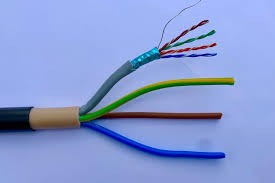Since electric cars (EVs) get more and more well-known, knowing EV cablescompatibility and performance is crucial for effective and secure charging. EV cables are essential components of the charging infrastructure, connecting your vehicle to a power source. This is what you should be aware of to ensure that you select the correct cable for optimal efficiency and performance.
1. Different types of cables for EVs. There’s two kinds of EV cables: Type 1 and Type 2. The Type 1 cables are generally used for older EV models, particularly those in North America and Asia, while Type 2 cables are standard in Europe and more recent models across the globe. It’s important to match the type of cable with the charging port of your vehicle in order to guarantee compatibility. Furthermore, cables can come in various lengths, so you should choose one that suits your charging setup whether at home or in public charging stations.
2. Charging Levels: EV cables support different charging levels, which affect the speed at which your vehicle charges. Level 1 charging uses an ordinary outlet from your home, as the most slow method. Level 2 charging requires a special EV charger, and offers quicker charging. Certain EVs as well as chargers support level 3 or DC fast charging. This allows for rapid charging but requires special cables and infrastructure. Ensure your cable supports the desired charging level for an efficient and efficient charging.
3. Specifications for Cables: When choosing an EV cable, take into account the current rating of the cable and the size of its conductors. Cables are typically rated for 16A and 32A and 32A cables providing faster charging. The cable should also be robust and weather-resistant, particularly if used outdoors. The best cables are built to endure diverse environmental conditions, such as UV exposure and temperatures extremes, which ensures longevity and reliability.
4. Safety and Certification: Safety is paramount when it comes to charging high voltage systems. Ensure that your EV cables you choose is accredited by standards recognized worldwide like UL, CE, or IEC. The certified cables comply with safety standards and quality standards, which reduces the risk of electrical faults or hazards. Furthermore, cables should have features that include thermal protection, which helps stop overheating.
5. Future-proofing: Think about securing your EV charging setup by choosing cables that support greater charging speeds and work with a range of EV models. As technology advances the need for a cable that can handle greater amperages and the latest charging standards will prevent you from needing an upgrade sooner.
6. Maintenance and Care: Proper maintenance of your EV cables ensures its long-term durability and high performance. Regularly inspect the cable for indications of wear or damage, and ensure it is kept in good condition and dry. Keep the cable in a safe place when it is not in use to protect it from destruction and extend its life.
In the end, understanding EV cables is key to ensuring efficient and safe charging. By choosing the best kind, specifications and the quality of the cable, you can improve your experience with EV charging and future-proof your setup against evolving technologies.



